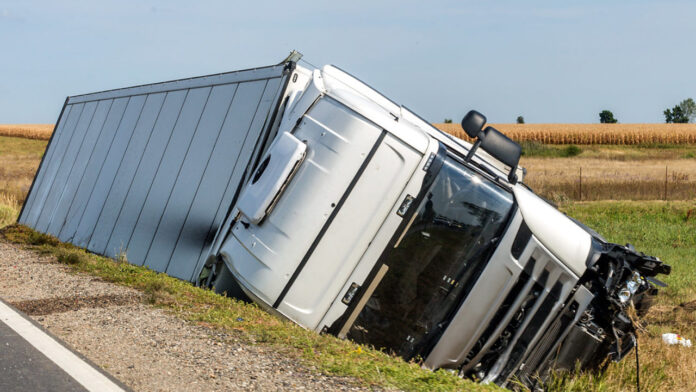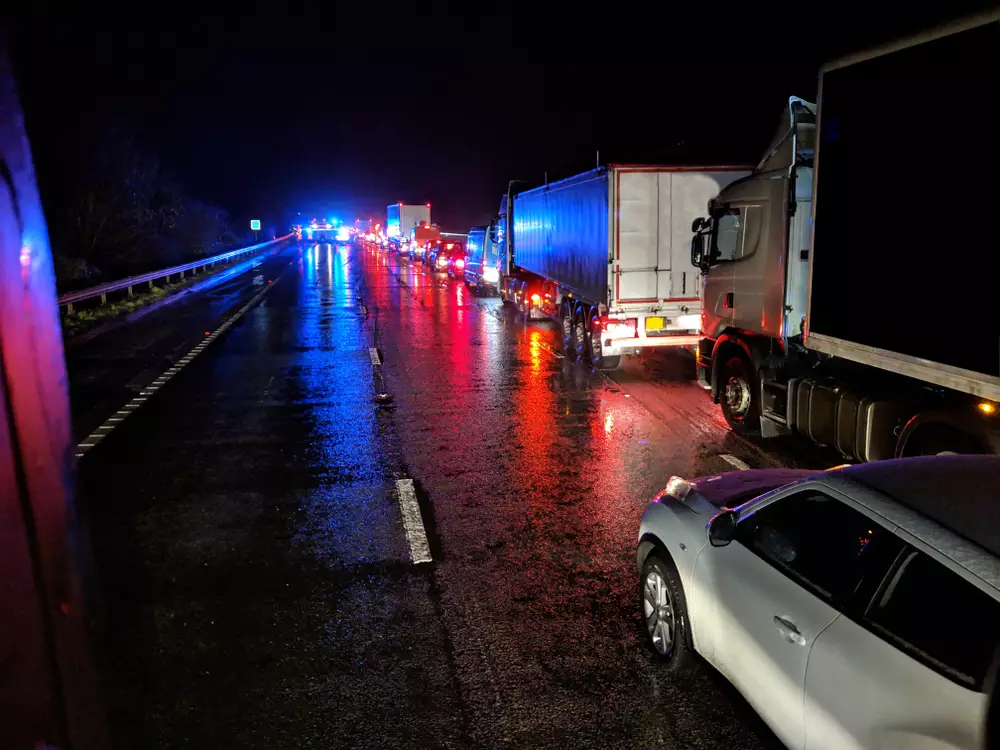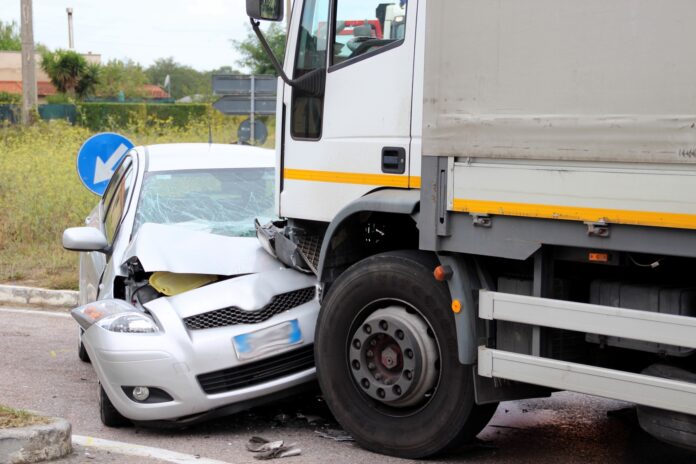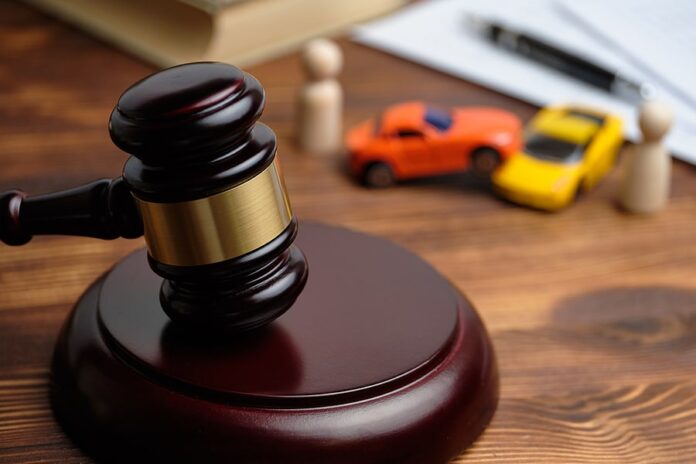One moment you’re cruising down the highway, the next, your world is turned upside down. A truck accident can be a life-altering experience. The shock and distress can leave you confused and unsure about what to do next. However, your actions immediately following the incident can greatly impact your future – physically, legally, and financially.
This comprehensive guide takes you through 12 key steps to ensure you manage the situation effectively, safeguarding your health and your rights. In case it happens in or around LA, California, Los Angeles Truck Accident Lawyer should be the one who guides you through the often-lengthy legal process that will ensue.
1. Assess Your Safety and Call for Help

In the direct aftermath of a truck collision, your initial focus must be safety. Ensure that you and others involved in the accident are secure from immediate harm. Consider hazards such as smoke or flames from vehicles, leaking fluids, or oncoming traffic. Once you’ve gauged the safety of the situation, call 911 immediately. Reporting the incident is not only essential for summoning necessary help but is also a legal requirement in many jurisdictions.
2. Move to a Safe Location, if Possible
If it’s safe to do so, attempt to move away from the traffic lanes. Maneuver your vehicle to the roadside or a nearby parking lot, reducing the risk of subsequent collisions. It’s important to understand that moving your car does not imply guilt or innocence concerning the accident; it’s merely a safety measure to protect you, the truck driver, and other road users.
3. Check for Injuries and Provide First Aid
Once you are in a secure location, it’s time to assess your physical condition. Check for visible injuries, bleeding, or pain. Don’t dismiss any discomfort as insignificant; even minor symptoms may indicate serious injuries. If you’re trained in first aid, apply it to yourself or others who may be injured. Remember, though, not all injuries are visible or immediate, so it’s important to seek professional medical help.
4. Call the Police and Report the Accident

When a truck collision occurs, a police report becomes a crucial piece of evidence. It’s an official record detailing the accident circumstances, parties involved, and potential violations. Therefore, if you haven’t called 911 in the initial shock, contact the police now. Ensure you provide them with an accurate and factual account of the incident. Stick to the facts, and avoid speculating about the causes or laying blame.
5. Exchange Information with the Truck Driver
This step involves collecting necessary details from the truck driver. Aim for information like their name, contact details, driver’s license number, insurance company, and policy number. If the truck is a commercial vehicle, jot down the company name and contact details. Maintain a calm and composed demeanor during this interaction; it can be a high-stress moment, but remember, you’re gathering information, not laying blame.
6. Gather Witness Information, if Available
Witness accounts can significantly contribute to establishing the facts of a truck collision. If there are bystanders who saw the accident, politely request their contact information. Ask them to briefly recount what they witnessed; their perspective might shed light on aspects you hadn’t considered.
7. Document the Scene and Damage

After the immediate risks are addressed, turn your attention to the documentation of the accident scene. Detail the scene in writing, describing the events leading up to the collision, the impact, and the aftermath. Note down the weather conditions, the state of the road, and the time of day. Also, mention the direction of travel and any road signs or signals. Along with the scene, document the damage to your vehicle and any other property affected. Capture the make, model, color, and license plate of the truck involved.
8. Take Photos and Videos of the Accident
Visual documentation of the accident scene and the damage can provide compelling evidence. With your phone or a camera, capture photographs of your vehicle, the truck, and any other damaged property. Aim to capture different angles and distances to give a comprehensive view of the accident’s impact. Recording a video of the scene can be equally valuable. Pan your camera to show the overall location and then focus on specific areas of damage.
9. Avoid Making Admissions of Fault
While it’s necessary to interact with the truck driver, witnesses, police, and insurance agents, it’s important to remain cautious. Resist the urge to apologize or make any statements that could imply guilt. Even an innocent comment like “I didn’t see the truck” could be construed as an admission of negligence. The other side of this coin involves not accusing the truck driver of causing the accident. The determination of fault should be left to the professionals.
10. Seek Medical Attention, Even if You Feel Fine

Even if you feel perfectly okay after the collision, it’s vital to seek medical attention. Some injuries, like whiplash or internal bleeding, might not manifest immediately but can have serious health implications if left untreated. A medical professional will be able to diagnose and treat such injuries, mitigating potential long-term consequences. In addition to ensuring your well-being, medical records documenting any injuries sustained can serve as significant evidence in an insurance claim or lawsuit.
11. Notify Your Insurance Company
As soon as feasible, reach out to your insurance company to report the collision. Most insurance policies require prompt reporting of accidents, so this step is crucial to ensure you remain eligible for coverage. Describe the accident truthfully, provide the truck driver’s and witnesses’ information, and share the police report if available. However, during these interactions, be mindful of your wording. Insurers may attempt to minimize their liability, and any statements indicating fault could be used against you.
12. Consult with an Experienced Truck Accident Attorney

Last but not least, it’s wise to seek legal counsel, preferably one with experience in truck accidents. These incidents can have intricate legal implications due to factors like commercial trucking regulations and multiple insurance policies. A knowledgeable attorney can guide you through these complexities, helping you understand your rights and options. Your lawyer will also handle negotiations with the truck driver’s insurance company. With their expertise, they can help ensure you receive a fair settlement.
A Final Thought
A truck accident can be an overwhelming experience, but your actions in the immediate aftermath can greatly influence your recovery and legal position. From prioritizing safety to documenting evidence and seeking professional advice, each step is crucial. While we hope you’ll never need to use this guide, should such an incident occur, these “key dozen” steps can provide a road map to navigate through challenging times.









